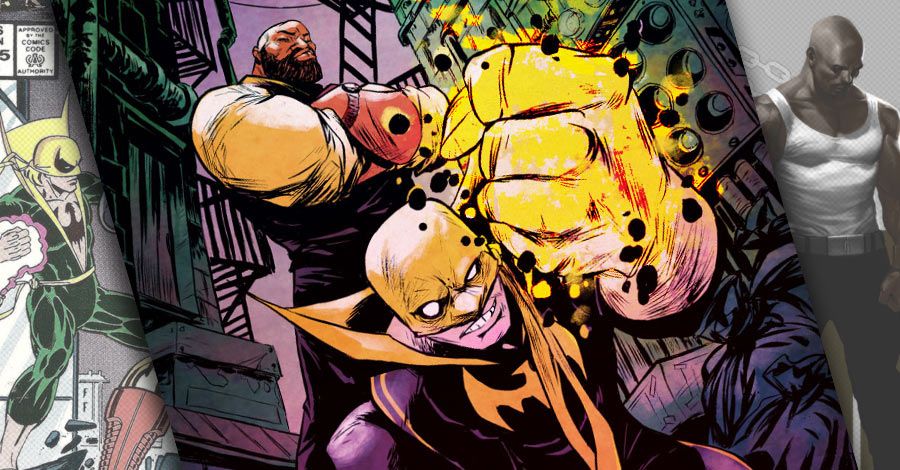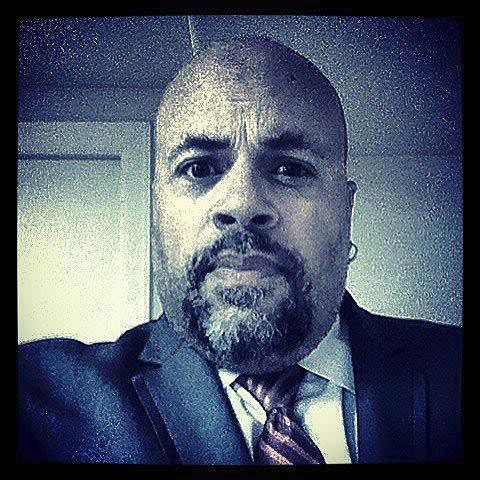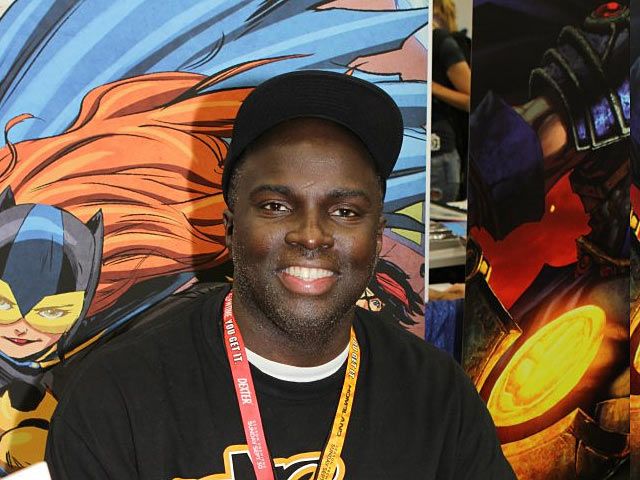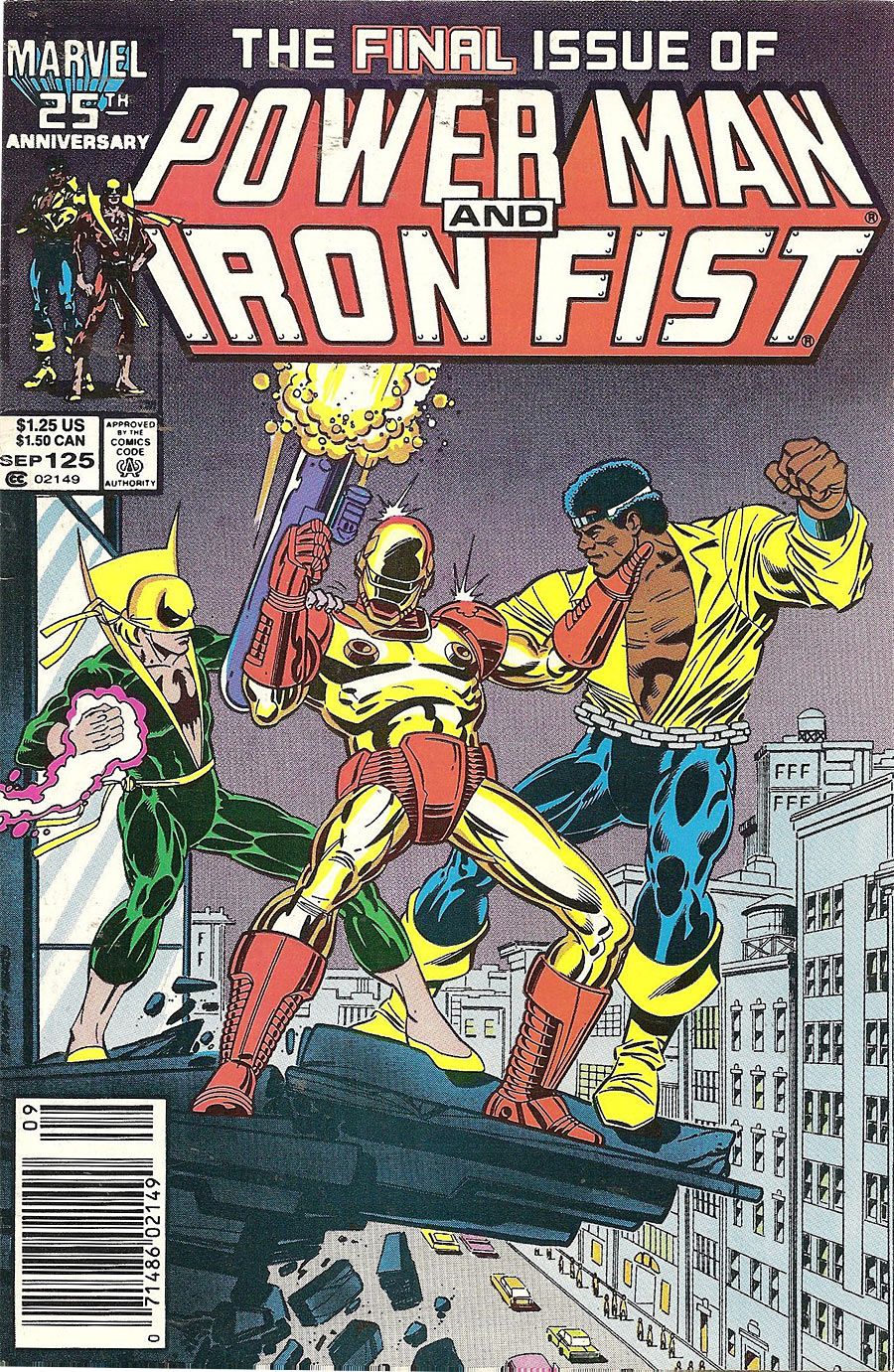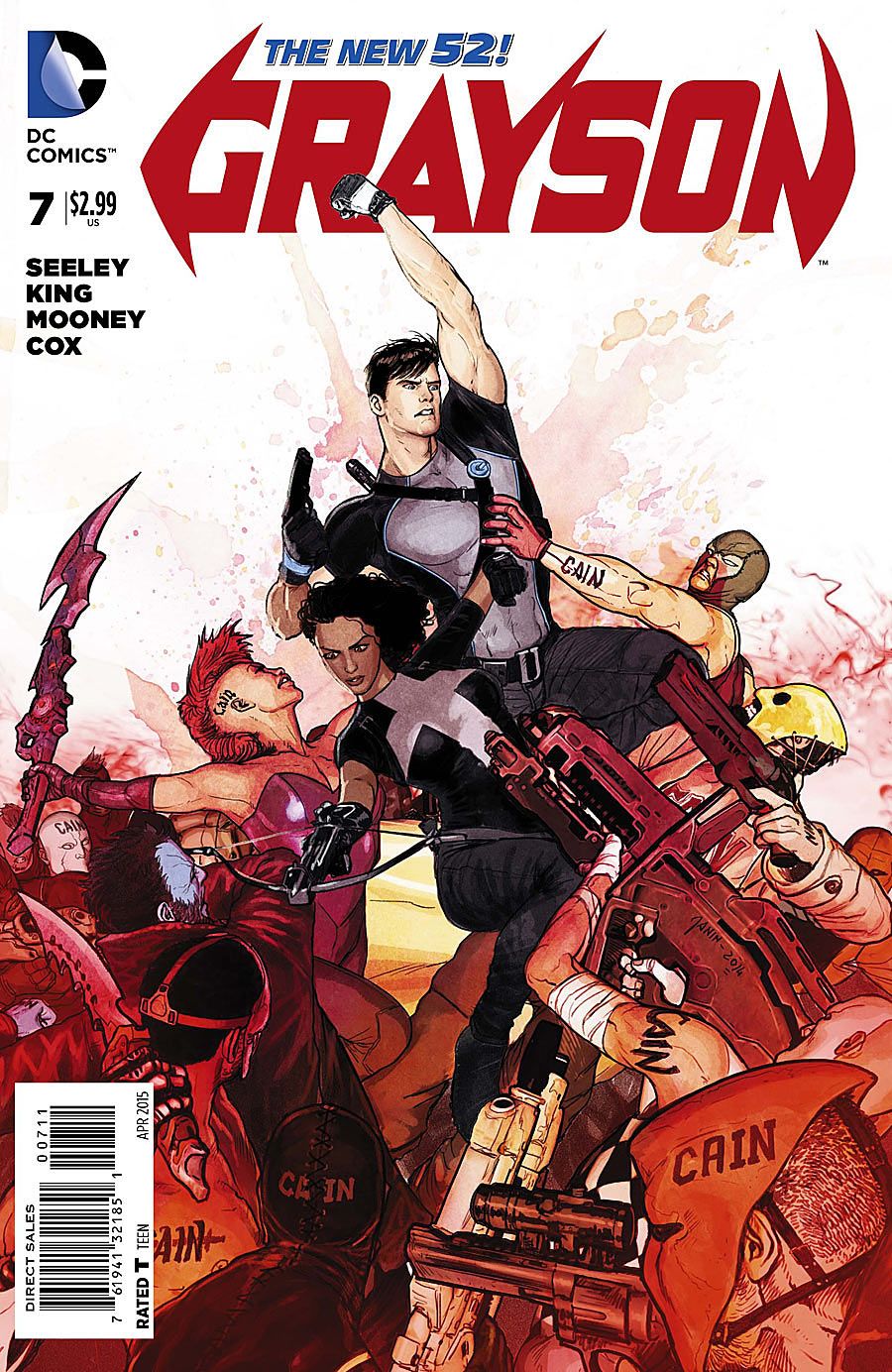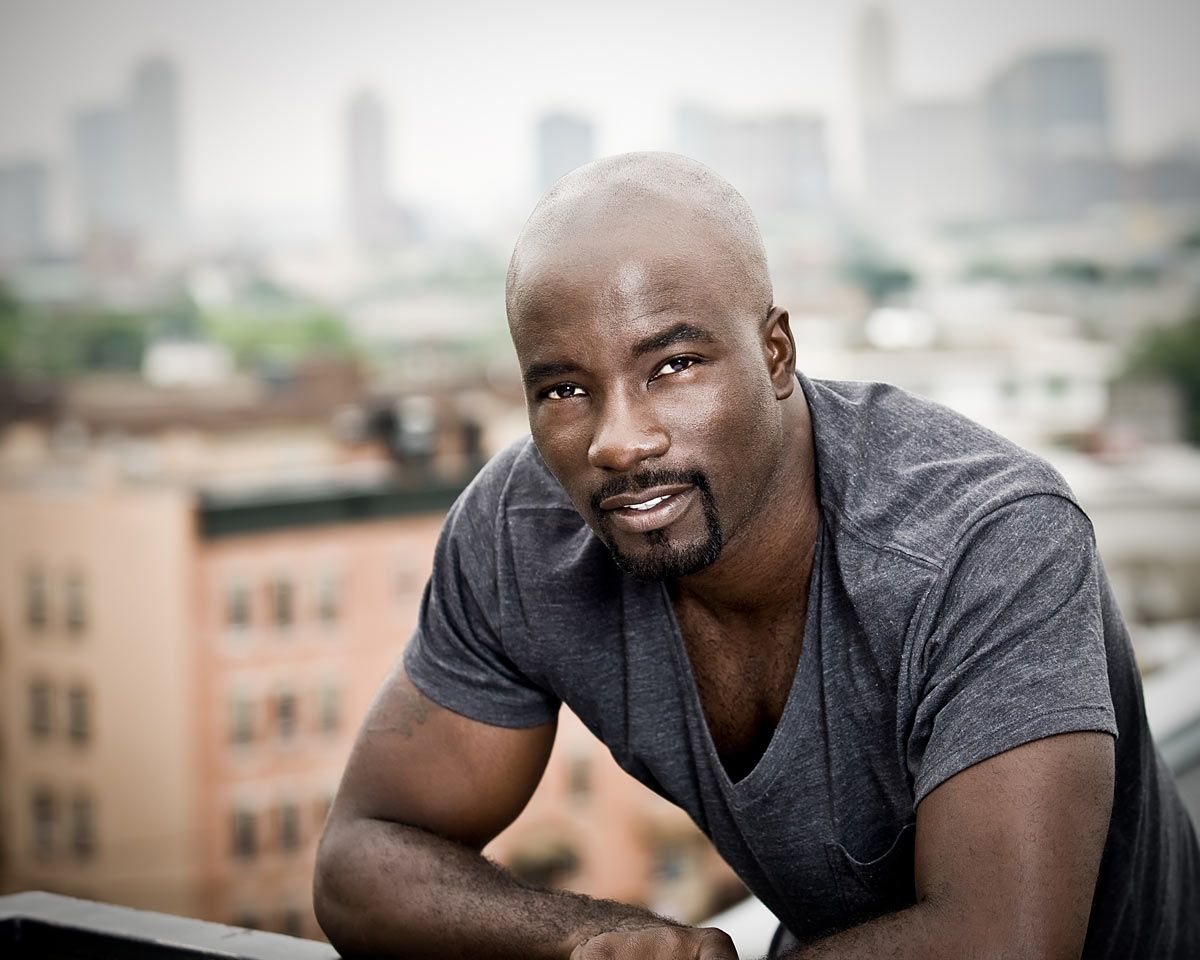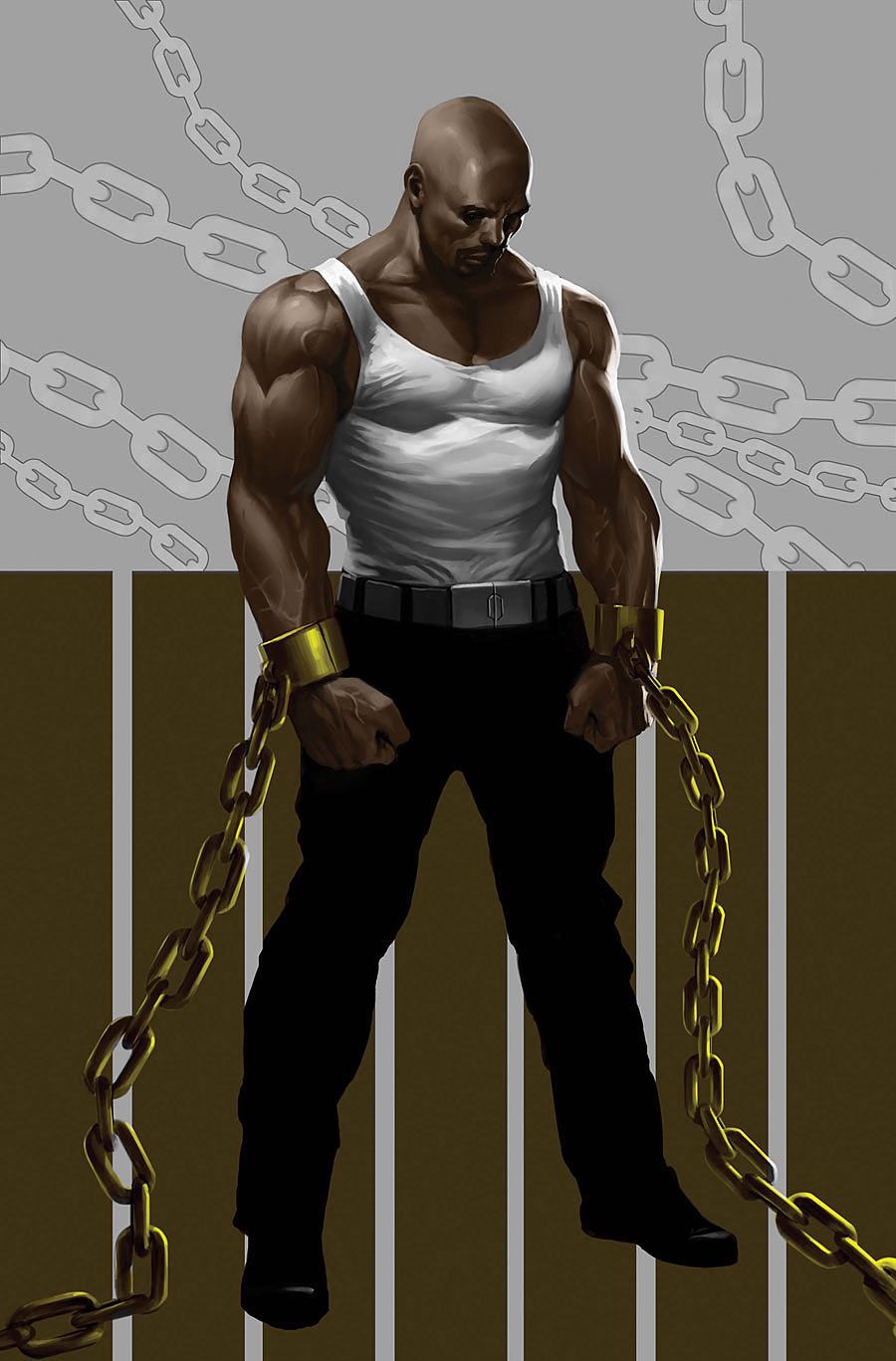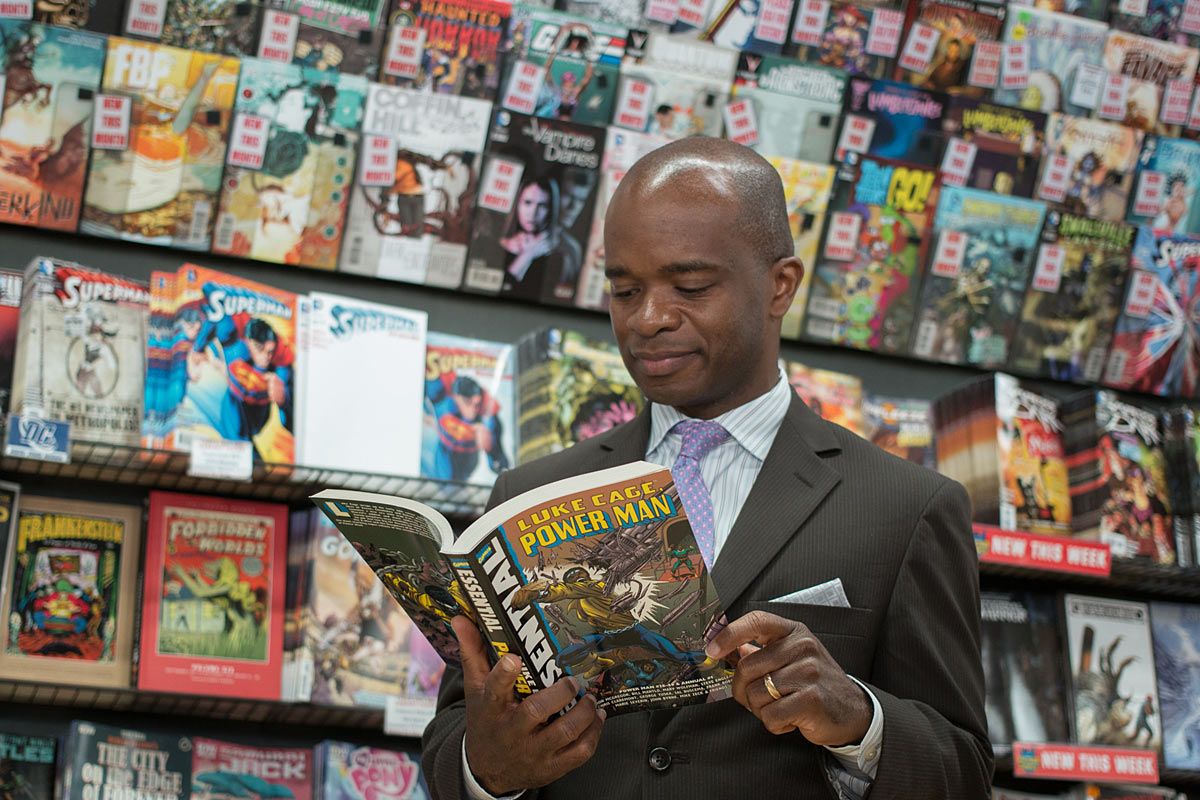On October 6, Marvel Comics announced the return of their original interracial male superhero duo, Power Man and Iron Fist, in the newest volume of the series.
The more impactful aspect of the announcement was the writer/artist team of David Walker and Sanford Greene, two Black creators.
Marvel Announces "Power Man & Iron Fist" By Walker & Greene
Walker is the writer of "Cyborg" for DC Entertainment and "Shaft" for Dynamite Entertainment. Greene is a veteran of Marvel and DC Comics, most recently as the illustrator of "Runaways," part of Marvel's major 2015 event, "Secret Wars."
During this pivotal time in the comic book industry, when the top publishers of American superhero comic books have been criticized for a lack of diversity in their writing pools, the announcement of Walker on "Power Man and Iron Fist" is another example of Marvel's stated goal to address the matter with a commitment to change.
The teaming of two Black creators on a superhero comic book about, in part, a Black male character is noteworthy, considering that most heroes of color in the comic book industry are, and have historically been, written by White creators.
There has been, and continue to be, more opportunities for artists of color to have creative involvement in stories about characters of color, connecting people of shared cultural experience with the character(s) they're depicting.
Once the news about the new "Power Man and Iron Fist" title was announced, there was a lot of activity on social media, all positive from my point of view.
However, in the various articles written on the new "Power Man and Iron Fist" title, there is at least one point which had been overlooked.
The hiring of a Black writer and Black artist on "Power Man and Iron Fist" is not groundbreaking, because it's been done before.
Writer Christopher Priest, formerly known as James Owsley, and artist Mark D. Bright, worked together on the first volume of "Power Man and Iron Fist" from 1985 to 1986, on issues #115-125. The two ended the first run of the seminal title, in fact.
So when you praise Marvel for putting both a Black writer and Black artist on "Power Man and Iron Fist," you are actually praising them for revisiting a past time of progressive hiring of creators.
It was truly bold in 1985, because there were fewer opportunities for writers and artists of color than now.
The road was being paved, then, and creators of color had to lay it down, piece by piece, navigating through the overt and discreet prejudices of their peers and employers.
Next year's debut of the new "Power Man and Iron Fist" will be the 31st anniversary of the title's primary creative custodianship being in the very capable hands of a talented Black writer/artist duo.
We're not going to discuss the fortuitousness of a "Power Man and Iron Fist" book starring Marvel's Luke Cage character going into publication the same year viewers will see the "Luke Cage" show by Marvel Studios and Netflix, because it's clear and proper business timing.
The Marvel Entertainment Industrial Complex is undeniably stellar when it comes to the alignment of their intellectual properties for profit maximization.
We're not going to discuss the increased marketability of interracial team dynamics in popular culture, because it's happening in popular television shows like FOX's "Minority Report" starring African-American actress Meagan Good and Caucasian actor Stark Sands, and comic books such as "Grayson," published by DC Entertainment, starring the Caucasian ex-partner of Batman and the Black/Italian assassin Helena Bertinelli.
But what is also noteworthy is that by Marvel Comics, the undisputed top publisher in the American superhero comic book industry, bringing Walker and Greene together, they are speaking to the consumers of color.
Their decision informs a stated commitment to respond to the issue of diversity, and the granular issue of a lack of Black writers, with timely and considerate action.
You may think that, as a result, "Power Man and Iron Fist" will be a sales hit among Black comic book consumers.
It would be an easy presumption to make.
This presumption would challenge the narrative of the lack of Black consumer support for comic books featuring Black characters with Black creators, or even non-Black creators.
There is a term for it now, which has become a go-to within the industry to describe this baffling phenomenon.
"Black Geek Stockholm Syndrome."
Coined by Brandon Easton, a writer on Marvel's "Agent Carter," this phenomenon lies at the center of an apparent paradox in which Black consumers demand material with Black characters, primarily by Black creators, yet history within the American superhero comic book industry of the last decade shows a lack of sales in that area.
It is a multilayered issue, and at the very least deserves examination of the analogy.
If you type "Stockholm syndrome" into Google, the top item is the definition as follows:
"Stockholm syndrome, or capture-bonding, is a psychological phenomenon in which hostages express empathy and sympathy and have positive feelings toward their captors, sometimes to the point of defending and identifying with the captors."
It's a reference to the Norrmalmstorg robbery of 1973, in which a bank in Sweden was under siege by robbers, and several employees were held hostage in a vault for six days. During that time, the captives developed emotional ties with their captors.
Empathy.
Loyalty.
A portion of the Black consumer base is seen as being held captive by Marvel and DC Comics, held captive in the collective vaults of childhood and nostalgia.
Just as the captives in Sweden sided with their captors, a number of Black consumers are viewed as siding with the top two superhero comic book publishers. Not only siding with the publishers, but siding with the heroic icons reflecting the dominant culture at said publishers.
Buy "Spider-Man" before buying "Power Man."
Buy "Batman" before buying "Cyborg."
The subject has been a hotbed topic of much discussion, and will likely continue to be.
That said, Marvel and DC Comics are not the only well-known publishers on the block as they were back in the day.
Valiant Entertainment. BOOM! Studios. Dynamite Entertainment. Image Comics. IDW Publishing.
That's five publishers I listed without even trying, and combined, those five publishers control more than a 10 percent share of the American comic book industry.
More than 1 out of 10 purchases.
More than 1 out of 10 consumers.
So that would be like having at least seven groups of robbers hitting a single bank and trying to take hostages.
It would never work.
The teams of robbers would see each other, and start shooting at each other, because there's no teaming up to rob a bank.
The captors would look at each other in amazement, and watch as these various parties fought against each other for dominance.
Sitting there, looking, either ducking, or exploring the possibility of escape.
Escape from the bank.
From imprisonment.
The captors of the past do not have such power in the present. They fight each other for dominance.
They see you and recognize that without you, as part of the symbiotic relationship of commerce and capitalism, there is no conquest.
So the captor is not the other. Captor and captive are one and the same.
Not making any significant attempt to break the purchasing patterns of the past.
Watching as publishers fight each other for the consumer dollar, in an industry constantly under assault from sales attrition and diminishing attentions spans.
Neither Marvel Comics nor DC Entertainment hold the keys to the shackles of consumers of color, Black or otherwise.
Stockholm does not reside in Marvel's New York offices or DC Entertainment's in Burbank.
The consumer in the equation is Stockholm.
Each and every passive, apathetic consumer who talks the big talk about wanting Marvel Comics and DC Entertainment to ante up, and reject their efforts when they do so.
They don't want diversity politics invading their comic book stores and digital devices from which they purchase electronic comic books.
Don't want anyone telling them what they should and should not purchase.
They don't understand the magnitude of Marvel's and DC Entertainment's return to more progressive hiring policies.
They watch television shows and movies based on comic books, and do not connect the dots between overall purchasing decisions and the choices made for which intellectual properties are released in which phases of master plans.
We cannot continue to consider Marvel and DC Entertainment the Stockholm in this analogy, and we have to accept the fact that if we want books like the new "Power Man and Iron Fist" to succeed and flourish, it's going to be on us.
We have to count the self-imprisoned consumers out of the equation, and not even depend on the upcoming "Luke Cage" and reported "Iron Fist" shows to bolster the sales enough to compensate for the consumers walking around with the shackles on their wrists and the keys in their pockets.
The consumers who want change have to figure out how to match the moves of Marvel with action that gives the bean counters reason to replicate the model.
"Power Man and Iron Fist" was ahead of its time during its original publication, with the spotlight on an interracial superhero duo.
The world has caught up to it now.
The burden of pushing diversity to the point where corporations will make it the norm will, in part, depend on us, our capability for lateral thinking and response.
Marvel and DC Comics aren't "The Man."
Even Luke Cage isn't suffering from wrist burn any more.
Joseph Phillip Illidge is a public speaker on the subjects of race, comics and the corporate politics of diversity. In addition to his coverage by CNN Money, the BBC and Publishers Weekly, Joseph has been a speaker at John Jay College of Criminal Justice, Digital Book World's forum, Digitize Your Career: Marketing and Editing 2.0, Skidmore College, Purdue University, on the panel "Diversity in Comics: Race, Ethnicity, Gender and Sexual Orientation in American Comic Books" and at the Soho Gallery for Digital Art in New York City.
Joseph is the Head Writer for Verge Entertainment, a production company co-founded with Shawn Martinbrough, artist for the graphic novel series "Thief of Thieves" by "The Walking Dead" creator Robert Kirkman and video game developer Milo Stone. Verge has developed an extensive library of intellectual properties for live-action and animated television and film, video games, graphic novels and web-based entertainment.
His graphic novel project, "The Ren," about the romance between a young musician from the South and a Harlem-born dancer in 1925, set against the backdrop of a crime war, will be published by First Second Books, a division of Macmillan.
Joseph's newest comic book project is the upcoming Scout Comics miniseries "Solarman," a revamp of a teenage superhero originally written by Stan Lee.

